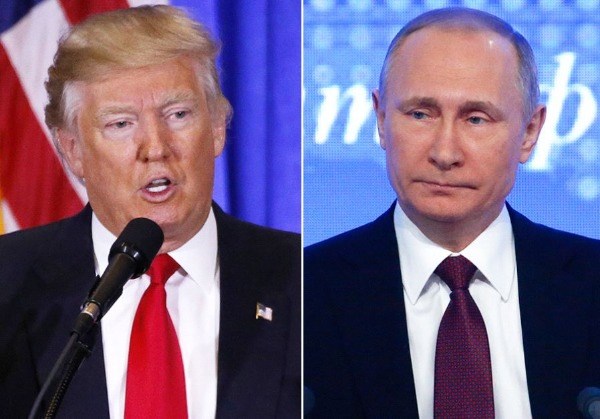Putin's strategic gamble: persuading Trump to abandon support for Ukraine amid ‘Oreshnik’ missile threats
During his annual year-end press conference, Russian President Vladimir Putin stated his readiness to engage in ongoing talks with former President Donald Trump, yet made no mention of intent to cease the so-called “special military operation” in Ukraine. As the world turns its attention to 2025, speculation arises over the Kremlin’s strategy regarding Ukraine and the West, particularly the U.S.
For the second consecutive year, Putin merged his press conference with the “Direct Line” session, supposedly addressing questions from everyday Russians. This year, event organizers claimed about two million queries were submitted to the Kremlin leader.
Nearly three years have passed since the infamous “Kyiv in three days” slogan emerged. When questioned about progress on the “special military operation” and whether victory was closer, Putin responded: “It’s hard to predict, but Moscow is moving towards the initial objectives outlined at the start of SVO (the special military operation).”
An NBC journalist questioned what Putin could offer future President Trump when they meet, pointing out the failure to meet military objectives, the death of Russian soldiers—including the assassination of a general in Moscow—and the exile of a Syrian leader supported by Putin. The reporter added, “When you meet President Trump, you’ll be seen as a weakened leader.”
Putin, emphasizing four years without contact with Trump, retorted, “You wish for a weakened Russia. But in the past three years, we’ve grown stronger, achieving true sovereignty with minimal dependency on others. Our military capabilities are now top in the world. I don’t know when Trump plans to meet. But I am ready anytime. Should I meet the newly elected U.S. president, Mr. Trump, I’m sure there will be much to discuss.”
Despite seemingly covering multiple issues in over four hours, Putin’s remarks on “Besom” took center stage. A “Zvezda” correspondent asked about Western claims that “Besom” is merely a modified Soviet-era weapon and could easily be shot down at launch. Putin replied, “Yes, there were certain developments, primarily Russian-era. Thus, it’s a new weapon. If Western experts believe it can be shot down, they should propose a technological duel of the 21st century—say, a target in Kyiv—amass their air defense there, and we’ll strike with ‘Oreshnik’ to see what happens. We’re ready for such experiments. Is the other party prepared?”
Notably, Putin’s grandiose “high-tech experiment” invitation was met with silence from the West. However, Ukraine’s President Volodymyr Zelensky commented succinctly yet profoundly, garnering significant social media traction in Ukraine. Political scientist Vadym Denysenko highlighted that to become a major force with unrestricted authority in the post-Soviet space, Putin believes capturing part of Ukraine and intimidating the world with “Besom” is essential.
Political scientist Oleh Lesnoi stressed the need for a structured response to Putin’s bold statements. He noted, “Rather than dismissing Putin’s bombastic threats, the West should articulate a response strategy. While preemptive measures may not be feasible, Western leaders should clearly assert that any ‘Oreshnik’ experiment would immediately trigger sanctions in previously untouched sectors. Clarify the potential course of action—ensure Ukraine’s defensive capabilities with rapid military support should the rocket target Kyiv.”
Lesnoi emphasizes that Putin distinctly separates the West and the U.S., expressing his willingness to engage with Trump without compromising on ending the war initiated by Moscow in Ukraine.
Meanwhile, another expert from the National Institute for Strategic Studies, Ivan Us, echoed these sentiments, affirming Putin’s steadfast continuation of the war irrespective of challenges in Russia. As Putin retaliates to NBC’s queries by refusing to deal with the West from a position of weakness, Us underscores the importance of conveying to Trump, through pro-Ukraine allies, the consequences of Ukraine’s capitulation as a defeat for both the West and the U.S.
